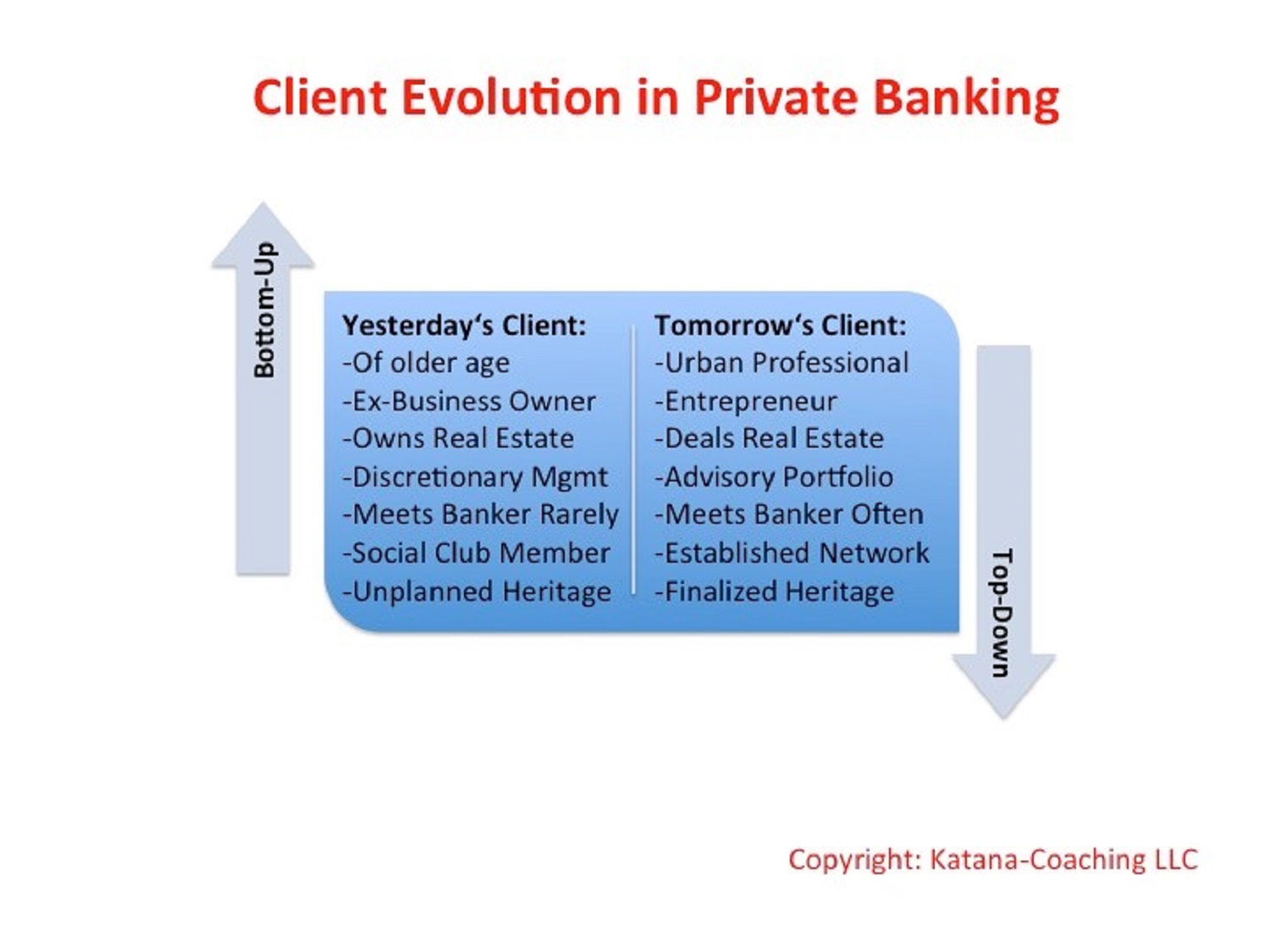Article: Special to Al Arabiya English

Make sure that your advisor is really listening to you in terms of identifiying your financial goals, needs and requirements, but also your private projects. (Shutterstock)
As a wealth manager, strategic advisor & business trainer, I am confronted regularly with somewhat serious challenges in the world of banking & finance.
I therefore listed the main issues whereby any banking organization can leverage their service level and increase their strategic efforts, facing increased client expectations. Furthermore, this article should serve as a checklist for any client, dealing with financial service providers, when it comes to a certain level of service.
You may have been asked the question, what you like about your bank andwhat you want to have changed in order for you to remain a loyal customer. At first, this might be a rather tricky question to answer.
Everyone of us is bound to learn from experiences with financial providers on a regular basis and only then, one usually is in the position to come up with a reply to the question asked earlier.
Let’s now take a closer look at some of these expectations from customers in the world of finance.
Understand where I am today and where I come from
I guess in every client facing business, we are talking about a so-called “wheel of fortune” or a certain advisory concept, one can expect when getting into business with a bank. You should be prepared that your banker makes a thorough check on you by any internal (or external) search platform in order for her or him to get a clear picture about you. There is no difference if the relationship is already existing. It’s the same.
Your advisor should be aware of any kind of achievements or changes in your business or private life, whenever this happens. Looking at a business perspective, it is important that your counterpart is aware of your financial situation or need, not just merely for the cause of cash or portfolio management, but also to have an idea, what your future requirements may look like, be it commercial or leisure activities.
Listen to what I really want and need
Looking at the evolution of private banking (see chart), the business went through a so-called, paradigm change.
Client requirements in the past have clearly shown us that the buying behaviour was completely different then, as it is now. It is also certain, that this process will further change in the future.
Therefore, make sure that your client advisor is really listening to you in terms of identifiying your financial goals, needs and requirements, but also your private projects.
Think and act in the customer’s name
If you are about to enter a business relationship (or leverage an existing one) with your banker then make sure, that she or he acts and thinks in your name. Sometimes, I hear client relationship managers talking about their customers what they need or what they want. However, in most cases, I guess it’s just an anticipation about something a client advisor thinks, his client wants, without even confirming the thought back to the client.
The reason therefore is mostly that the relationship manager is afraid of any consequences deriving from his client, asking him a rather difficult or uncomfortable question. In reality, however, it’s mostly not that bad or negative, asking your client savvy questions. It’s basically the other way round. You can increase your level of professionalism, by asking some intelligent questions back to your customer.
Remember: The more you ask, the more you know!
Communication
Communication is key and this also goes for banking & finance.
The present challenges from legal & compliance forces anyone to increase a regular and steady flow of information between bank and client. Times are over when important information doesnt flow back to the client.
Today’s level of knowledge through virtual media and efficient and fast professional media resources are part of the plan. It can happen that one may receive information through a certain source, before some other people even know what it’s all about. On the other hand, sometimes the level of information is also just brief and does not go any further then just a headline.
However, any banking customer today has the right to be clearly informed about why, certain laws are to be increased or changed. For example, when a client advisor asks you to sign additional paperwork on a already existing business relationship then she or he has to be in the position to explain the reason behind a new ruling or regulatory change.
Furthermore, when clients are asked to come up with additional information on their personal or institutional background for various reasons, ask them to explain in order for you to understand what kind of contractual agreement you sign.
Make sure that requirements are clearly and duly communicated, understood and received between both parties anytime.
You may also expect from your client advisor that she or he does not delay any kind of information. Be it positive or negative. Furthermore, make sure that you memorize conversations by taking notes for future references.
Work when I work
When working with international clients or entrepreneurs, it’s obvious that this means “activity during odd hours“. However, this should not cause any limit to either client or bank. We live in a truly globalized world and therefore, time constraints should not be a dealbreaker for both parties.
A client can expect a short call or message back, even during late hours or anytime over the weekend, if it’s necessary! Don’t accept someone telling you that phones are switched off during the weekend, if they really want to be professional.
Do you cross-sell?
It seems to me that some people are intimidated when they hear the word cross selling or when they have to imagine getting involved in it.
Relax! It is just a word, but a powerful tool, once you know how to ride the wave. I always look at cross selling like into a process to build alliances, internal or external. Furthermore, everybody likes you, once you can cross sell efficiently, as it makes you look as being some kind of ambassador, being able to steer certain needs towards a desired direction or otherwise, making ends meet.
This also goes for connections you want to profit from. Ask your banker to help you leverage and increase an already established network from an organization. One usually finds an interesting crowd of people driven by similar ideas during events or invitations. Make sure that you choose a banker who can live up to your expectations.
Share some ideas
A crucial issue for me is the art of sharing ideas. There is no real value in any kind of relationship, when sharing is not part of the deal. If your client advisor knows about your hobbies or activities, then she or he should challenge you with them. In other words, there is no use, inviting you to the Opera, if you can’t sit still for four hours.
However, you might rather want to discuss some issues during a bycicle tour, as cardio exercises can help you jump start some more creative thoughts.
Furthermore, finding a common hobby or passion with someone, often sparks a real positive attitude towards one another, not just in business but also in any private environment.
Empowerment
You may very well expect a client advisor or relationship manager to be some kind of inspiration in your life. I personally think, that any front facing job should be performed by someone who loves people and likes to communicate. Needless to say that efficient communicators often find themselves as capable motivators.
A well experienced banker sees and hears a lot and she or he is embedded in a well situated working environment. Therefore, one should get informed on certain trends and statistics. On another note, for any financial provider, there are more research papers then just stocks and bonds on file. As a client, don’t be shy, if you need information on either real estate, commodities, classic cars, or any other investment opportunity.
Furthermore, many banks issue regular macro economic outlooks and forecasts. However, financial institutions most probably don’t deliver these bulletins automatically. Make sure you ask for them.
Where is the trust?
Trust is a serious word in the universe of banking & finance and immediately, some funny quote comes up to my mind:
“Never trust a banker who says trust me“!
In any case, trust is easily shown through reliability and honesty and there again, too many people fail.
It can never be a call too much when you are informed about a pending issue which is to be solved in the name of the cause. I often wonder why relationship managers execute orders without confirming the trade back to the client. There are so many reasons to perform a follow-up call, be it for the execution price, order flow, value date, execution date or whatever background, concerning to the order received.
Sometimes even a short private message is good enough, because it gives someone the imminent and comfortable feeling that someone else is taking care of your needs and that the issue is solved and therefore, one can focus on other things.
Another good example is the information flow based on credit card transcations. Once a credit line is reached, the card is blocked. You can expect your client advisor anytime to inform you about this issue, before you offer to pay a client dinner not knowing that your credit line doesnt allow further purchases. A situation like this is embarrassing.
Make sure your private banker is trust-worthy. Put him on to a test!
About the author:
Andy Aeschbach is acting senior partner with an asset management company in Zurich, Switzerland. He holds an international coaching certification and is the founder and managing partner of Katana-Coaching, an international established training & consulting association and change management boutique for financial service providers, in Zurich, Switzerland.

